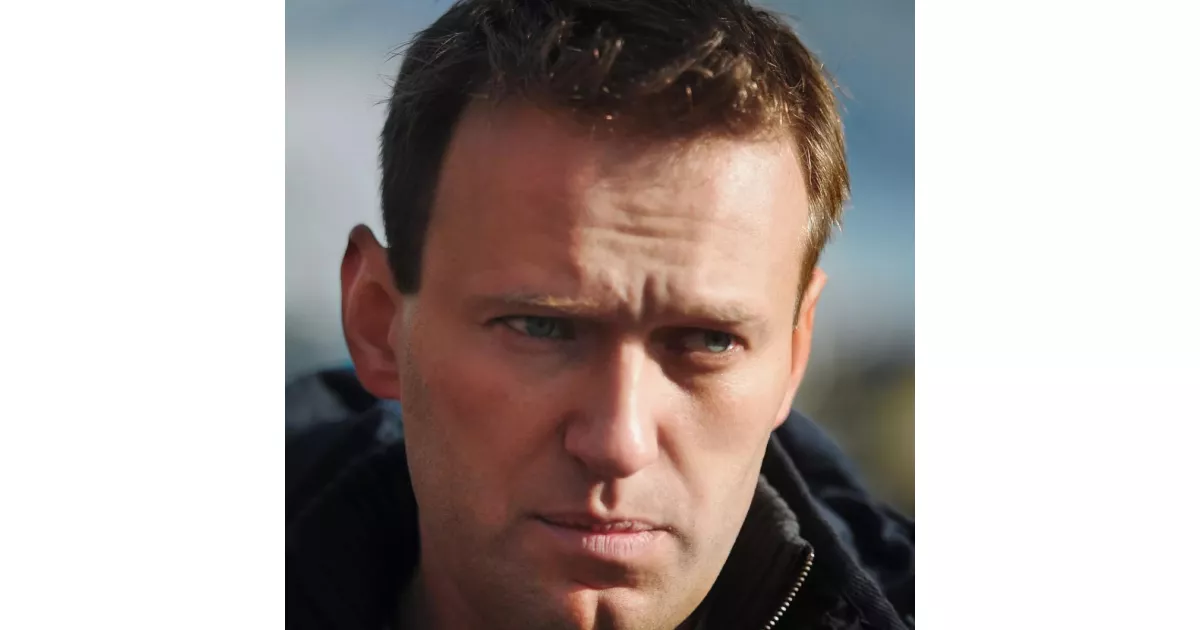A closer look at the defining struggles that shaped Alexei Navalny's life and career.
Alexei Navalny was a prominent Russian opposition leader and anti-corruption activist. He founded the Anti-Corruption Foundation (FBK) in 2011, dedicated to investigating and exposing corruption within the Russian government. Navalny gained international recognition for his activism, including being recognized as a prisoner of conscience by Amnesty International and receiving the Sakharov Prize. However, he also faced multiple criminal charges and imprisonment, widely considered politically motivated. He was a vocal critic of Vladimir Putin and a significant figure in Russian politics despite facing constant pressure and legal challenges.
December 2007: Expelled from Yabloko
In December 2007, Alexei Navalny was expelled from Yabloko for his nationalist views and for participating in the Russian March.
2007: Alleged fraud by Allekt against the Union of Right Forces
In 2007, Allekt, an advertising company headed by Navalny, was accused of defrauding the Union of Right Forces (SPS) political party. The allegation stated that the company took 100 million rubles ($3.2 million) payment for advertising without fulfilling the contract.
2008: Navalny accused of embezzling funds from postal business
In 2008, Alexei Navalny and his brother Oleg were accused of embezzling 55 million rubles ($1.76 million) while working in a postal business. This accusation was part of a series of inquiries against Navalny during that period.
2009: Embezzlement in 2009
In 2009, Alexei Navalny allegedly conspired to steal timber from Kirovles, a state-owned company in Kirov Oblast.
May 2011: Criminal Investigation into Navalny
In May 2011, the Russian government initiated a criminal investigation into Navalny, which was widely described as "revenge".
December 2011: Arrested after protests
In December 2011, Alexei Navalny was arrested on December 5th after parliamentary elections and accusations of electoral fraud in Moscow and sentenced to 15 days in jail.
2011: Accusation of embezzlement in postal business extends to 2011
The alleged embezzlement case involving Alexei Navalny and his brother Oleg, related to their work in a postal business, spanned from 2008 to 2011. The accusation stated the embezzlement totalled 55 million rubles ($1.76 million).
March 2012: Anti-Putin rally and detention
In March 2012, Alexei Navalny helped lead an anti-Putin rally in Moscow and was detained by authorities for several hours.
May 2012: Arrested after anti-Putin rally
On May 8, 2012, Alexei Navalny was arrested after an anti-Putin rally at Clean Ponds and given a 15-day jail sentence.
July 2012: Navalny charged with embezzlement
On July 30, 2012, Alexei Navalny was charged with embezzlement by the Investigative Committee, accused of conspiring to steal timber from Kirovles in 2009.
December 2012: Investigative Committee Accuses Navalny of Fraud
In December 2012, the Investigative Committee of Russia alleged that Allekt, an advertising company headed by Alexei Navalny, defrauded the Union of Right Forces (SPS) political party in 2007. They claimed Navalny took a 100 million rubles payment for advertising and failed to honor the contract. Also in December, Navalny and his brother Oleg were accused of embezzling 55 million rubles in 2008-2011 while working in a postal business.
2012: Navalny Faces Embezzlement Charges
On 18 July 2012, Navalny was sentenced to a five-year prison term for embezzlement and fraud. He pulled out of the Moscow mayoral race but later vowed to stay after being freed on bail pending an appeal.
April 2013: Kirovles trial commenced in April 2013
The Kirovles trial commenced in the city of Kirov on April 17, 2013.
July 2013: Registration Declined for People's Alliance Party
On 5 July 2013, registration was declined for The People's Alliance party, due to some founders not being present during the congress. Navalny reacted with a tweet.
October 2013: Suspended prison sentence in October 2013
In October 16, 2013, Alexei Navalny's prison sentence was suspended by a court in Kirov.
November 2013: Deprived of advocate status
In November 2013, after the judgement in the Kirovles case had entered into force, Alexei Navalny was deprived of advocate status.
2013: Suspended sentence and Moscow mayoral election
In 2013, Alexei Navalny received a suspended sentence for embezzlement, considered politically motivated. He also ran in the 2013 Moscow mayoral election and came in second.
2013: Navalny Re-sentenced in Kirovles Case
On 8 February 2017, the Leninsky district court of Kirov repeated its 2013 sentence in the Kirovles case, potentially prohibiting Navalny's official registration as a candidate. Navalny announced his presidential campaign would proceed regardless.
2013: Leninsky district court of Kirov repeated its sentence of 2013
On February 8, 2017, the Leninsky district court of Kirov repeated its sentence of 2013 and charged Alexei Navalny with a five-year suspended sentence.
2013: Russia's Supreme Court overturned the 2013 sentence
On November 16, 2016, Russia's Supreme Court overturned the 2013 sentence, sending the verdict back to the Leninsky District Court in Kirov for review.
January 2014: Navalny's Party Files for Registration Again
On 8 January 2014, Navalny's party filed documents for registration for the second time, however, on 20 January, registration was suspended because no two parties can share a name.
February 2014: Navalny was placed under house arrest
On February 28, 2014, Alexei Navalny was placed under house arrest and prohibited from communicating with anyone other than his family, lawyers, and investigators.
December 2014: Navalny was found guilty of fraud and money laundering
On December 30, 2014, Alexei Navalny was found guilty of fraud against Multiprofile Processing Company (MPC) and Yves Rocher Vostok and money laundering and was given 3 1/2 years of suspended sentence.
2014: Second suspended sentence
In 2014, Alexei Navalny received a second suspended sentence for embezzlement, widely considered politically motivated and intended to bar him from running in future elections.
2014: Suspended sentence in Yves Rocher case
In 2014, Navalny received a suspended sentence in the Yves Rocher case, which he called politically motivated. This sentence was later cited by the FSIN as justification for his detention upon his return to Russia in January 2021.
2014: Timur Kuashev's death linked to unit tracking Navalny
In 2014, activist Timur Kuashev died and in January 2021, Bellingcat, The Insider, and Der Spiegel linked the unit that tracked Navalny to Kuashev's death.
April 2015: Progress Party Deprived of Registration
On 28 April 2015, the Ministry of Justice deprived the Progress Party of its registration, claiming the party had not registered the required number of regional branches within six months. The party would appeal.
July 2015: Informal Prohibition on Mentioning Navalny's Name
In July 2015, Bloomberg reported that there was an informal prohibition from the Kremlin for senior Russian officials to mention Navalny's name. Putin himself avoided saying Navalny's name in public.
October 2015: Navalny Pays Compensation in Yves Rocher Case
In October 2015, Alexei Navalny's lawyer announced that he willingly paid 2.9 million rubles toward the 4.4 million rubles compensation required in the Yves Rocher case. He requested an installment plan for the remainder, which was granted, although the term was shortened. This action was taken despite Navalny's claim that the case was a frame-up, to potentially influence his brother's parole.
2015: Ruslan Magomedragimov's death linked to unit tracking Navalny
In 2015, activist Ruslan Magomedragimov died and in January 2021, Bellingcat, The Insider, and Der Spiegel linked the unit that tracked Navalny to Magomedragimov's death.
November 2016: Russia's Supreme Court overturned the 2013 sentence
On November 16, 2016, Russia's Supreme Court overturned the 2013 sentence, sending the verdict back to the Leninsky District Court in Kirov for review.
February 2017: Navalny Re-sentenced in Kirovles Case
On 8 February 2017, the Leninsky district court of Kirov repeated its 2013 sentence in the Kirovles case, potentially prohibiting Navalny's official registration as a candidate. Navalny announced his presidential campaign would proceed regardless.
February 2017: Leninsky district court of Kirov repeated its sentence of 2013
On February 8, 2017, the Leninsky district court of Kirov repeated its sentence of 2013 and charged Alexei Navalny with a five-year suspended sentence.
March 2017: Navalny publishes investigation and organizes anti-corruption rallies
In March 2017, Alexei Navalny published the investigation He Is Not Dimon to You, accusing Prime Minister Dmitry Medvedev of corruption, and organized anti-corruption rallies across Russia. On March 27, he was fined 20,000 rubles and jailed for 15 days.
April 2017: Navalny Attacked with Green Dye
On 27 April 2017, Navalny was attacked outside his office in the Anti-Corruption Foundation and sprayed with green dye, resulting in a chemical burn to his right eye and reportedly causing significant vision loss. Navalny accused the Kremlin of orchestrating the attack.
July 2017: Navalny Released from Jail
On 27 July 2017, Navalny was released from jail after serving 25 days for participating in illegal protests in Moscow.
September 2017: Human Rights Watch Accuses Russian Police of Interference
In September 2017, Human Rights Watch accused Russian police of systematic interference with Navalny's presidential campaign, urging authorities to investigate attacks against campaigners. The Committee of Ministers of the Council of Europe urged Russia to erase the prohibition on Navalny's standing for election.
October 2017: European Court of Human Rights ruled Navalny's conviction was unfair
In October 2017, the European Court of Human Rights (ECHR) ruled that Alexei Navalny's conviction for fraud and money laundering was based on an unforeseeable application of criminal law and that the proceedings were arbitrary and unfair, violating articles 6 and 7 of the European Convention on Human Rights.
October 2017: Navalny Sentenced to Jail for Protest Calls
On 2 October 2017, Navalny was sentenced to 20 days in jail for calling for participation in protests without state approval.
December 2017: Navalny Barred from Presidential Run
In December 2017, Russia's Central Electoral Commission barred Navalny from running for president in 2018 due to his corruption conviction. The European Union expressed concerns, and Navalny called for a boycott of the election.
2017: Chemical attack in 2017
In 2017, Alexei Navalny suffered a chemical attack by an alleged protester and was treated by ophthalmologist Anastasia Vasilyeva.
2017: European Court of Human Rights ruled Navalny was unfairly convicted
In 2017, the European Court of Human Rights ruled that Navalny was unfairly convicted. This ruling was brought up following his detention in January 2021.
January 2018: Navalny leads protests and is arrested
On January 28, 2018, Alexei Navalny led protests urging a boycott of the presidential election. He was arrested on the same day and released pending trial. Throughout the country, 257 people were arrested. Navalny was likely to be charged with calling for unauthorized demonstrations.
January 2018: Navalny imprisoned for staging protests in January 2018
Shortly after his allegations against Viktor Zolotov, Alexei Navalny was imprisoned for staging protests in January 2018.
February 2018: Navalny accused of assaulting an officer
On February 5, 2018, the government accused Alexei Navalny of assaulting an officer during the protests that took place in January.
September 2018: Navalny arrested again after release
On September 25, 2018, immediately after his release from jail, Alexei Navalny was arrested and convicted for organizing illegal demonstrations, and sentenced to another 20 days in jail.
November 2018: Grand Chamber upheld ECHR decision on Navalny's conviction
In November 2018, the Grand Chamber upheld the European Court of Human Rights' decision regarding Alexei Navalny's conviction. This re-affirmed the initial ruling that the conviction was based on an unforeseeable application of criminal law, marking a significant challenge to the Russian legal system.
2018: Barred from 2018 presidential election
Alexei Navalny was barred from running in the 2018 presidential election.
2018: Navalny Barred from Presidential Run
In December 2017, Russia's Central Electoral Commission barred Navalny from running for president in 2018 due to his corruption conviction. The European Union expressed concerns, and Navalny called for a boycott of the election.
April 2019: Moskovsky Shkolnik Files Lawsuit Against Navalny
In April 2019, after Alexei Navalny alleged that Russian billionaire Yevgeny Prigozhin was linked to Moskovsky Shkolnik, a company accused of supplying poor quality food to schools and causing a dysentery outbreak, Moskovsky Shkolnik filed a lawsuit against Navalny.
July 2019: Navalny arrested and hospitalized
In July 2019, during the Moscow City Duma election, Alexei Navalny was arrested, first for ten days, and then for 30 days. On July 28, he was hospitalized with severe damage to his eyes and skin and diagnosed with an "allergy". On July 29, he was discharged and taken back to prison. In response, he initiated the Smart Voting project.
October 2019: Court Orders Navalny to Pay Moskovsky Shkolnik
In October 2019, the Moscow Arbitration Court ordered Alexei Navalny to pay 29.2 million rubles to Moskovsky Shkolnik. This was after Navalny had alleged the company supplied poor quality food to schools, leading to a dysentery outbreak. Navalny argued that cases of dysentery were proven using documents.
2019: Nikita Isayev's death linked to unit tracking Navalny
In 2019, politician Nikita Isayev died and in January 2021, Bellingcat, The Insider, and Der Spiegel linked the unit that tracked Navalny to Isayev's death.
April 2020: Yandex Manipulates Search Results for Navalny
In April 2020, the Yandex search engine began artificially placing negative commentary about Alexei Navalny at the top of search results for his name. Yandex claimed it was part of an "experiment" and later returned to presenting organic search results.
June 2020: Slander Case Launched Against Navalny
In June 2020, a slander case was launched against Alexei Navalny for defaming a World War II veteran who participated in a promotional video supporting constitutional amendments. Navalny had called participants in the video "corrupt lackeys" and "traitors".
August 2020: Poisoned with Novichok
In August 2020, Alexei Navalny was hospitalized after being severely poisoned with a Novichok nerve agent and was medically evacuated to Berlin.
August 2020: Navalny Falls Ill on Flight and is Hospitalized
On August 20, 2020, Alexei Navalny became ill during a flight from Tomsk to Moscow, leading to an emergency landing in Omsk. He was hospitalized in the Emergency City Clinical Hospital No. 1. His condition changed rapidly on the plane, and he was heard screaming loudly. He later recounted that he was screaming not from the pain, but from the knowledge that he was dying.
August 2020: Prigozhin intends to enforce court decision against Navalny
On August 25, 2020, Yevgeny Prigozhin stated his intention to enforce a court decision requiring Alexei Navalny, Lyubov Sobol, and the Anti-Corruption Foundation to pay 88 million rubles in damages to the Moskovsky Shkolnik company. This was related to a video investigation conducted by Navalny and his associates.
December 2020: Laws passed giving constitution precedence over international rulings
In December 2020, Russia passed and signed laws giving the constitution precedence over rulings made by international bodies and international treaties. This paved the way for them to ignore a ruling from the ECHR in February 2021.
December 2020: Navalny Releases Video of Call with Alleged Chemical Weapons Expert
On December 21, 2020, Alexei Navalny released a video where he impersonated a Russian security official and spoke with a man identified as Konstantin Kudryavtsev, an alleged chemical weapons expert. During the call, Kudryavtsev revealed that the poison had been placed on Navalny's clothing, particularly his underwear, and that Navalny would have died without the emergency landing and quick response from medical personnel.
January 2021: Detained upon return to Russia
In January 2021, Alexei Navalny returned to Russia and was immediately detained on accusations of violating parole conditions.
January 2021: Investigation links unit tracking Navalny to other deaths
In January 2021, Bellingcat, The Insider, and Der Spiegel linked the unit that tracked Alexei Navalny to the deaths of activists Timur Kuashev in 2014 and Ruslan Magomedragimov in 2015, and politician Nikita Isayev in 2019.
January 2021: Navalny Returns to Russia and is Detained
On January 17, 2021, Alexei Navalny returned to Russia from Germany on Pobeda airlines flight DP936. The flight was diverted to Sheremetyevo International Airport, and he was detained at passport control. The Federal Penitentiary Service (FSIN) confirmed his detention for violating probation terms and stated he would remain in custody until a court hearing.
January 2021: Court Orders Detention of Navalny and Investigation Against Putin is Published
On January 18, 2021, a court ordered the detention of Alexei Navalny until February 15 for violating his parole. A makeshift court was set up in the police station where Navalny was held. On January 19, while in jail, Navalny and the FBK published an investigation accusing President Vladimir Putin of corruption. This arrest and the investigation resulted in mass protests across Russia starting on January 23, 2021.
January 2021: Navalny's lawyers apply for 'interim measure' for his release
On January 20, 2021, Alexei Navalny's lawyers applied to the European Court of Human Rights for an 'interim measure' for his release following his detention. The application was made in light of the risk to Navalny's life.
February 2021: Amnesty International Briefly Revokes Navalny's 'Prisoner of Conscience' Designation
In February 2021, Amnesty International briefly revoked Alexei Navalny's designation as a prisoner of conscience after receiving complaints about xenophobic comments he had made in the past. However, Amnesty reversed this decision in May of the same year, reaffirming the designation and emphasizing the need for Navalny's rights to be recognized.
February 2021: ECHR Orders Navalny's Release, Russia Refuses
On February 16, 2021, the European Court of Human Rights (ECHR) ruled that the Russian government should immediately release Alexei Navalny, citing risks to his life. However, Russian officials refused to comply, calling it a flagrant intervention. Later in February, a Moscow court rejected Navalny's appeal but reduced his sentence by six weeks. Another court convicted Navalny on slander charges and fined him 850,000 rubles ($11,541).
February 2021: Navalny's Suspended Sentence Replaced with Prison Sentence
On February 2, 2021, a Moscow court replaced Alexei Navalny's three-and-a-half-year suspended sentence with a prison sentence, minus time spent under house arrest, resulting in over 2+1⁄2 years in a corrective labor colony. The verdict was widely condemned internationally. After the verdict, protests were held in various Russian cities and met with police crackdown.
February 2021: Navalny Arrives at Pokrov Correctional Colony
On February 28, 2021, it was reported that Alexei Navalny had recently arrived at the Pokrov correctional colony in Vladimir Oblast. This is the same prison where Dmitry Demushkin and Konstantin Kotov were also jailed.
March 2021: Navalny Accuses Authorities of Torture and Sleep Deprivation
In March 2021, Alexei Navalny formally accused authorities of torture by depriving him of sleep, arguing that he was being woken up eight times a night. He also reported health problems, including a loss of sensation in his spine and legs, and was denied access to a civilian physician. On March 31, he announced a hunger strike to demand proper medical treatment.
March 2021: EU and US Impose Sanctions on Russian Officials
In early March 2021, the European Union and the United States imposed sanctions on senior Russian officials in response to the poisoning and imprisonment of Alexei Navalny.
April 2021: Moscow prosecutor requests to designate organizations linked to Navalny as extremist
On 16 April 2021, the Moscow prosecutor office requested the Moscow City Court to designate organizations linked to Alexei Navalny, including the Anti-Corruption Foundation and his headquarters, as extremist, claiming they destabilize the socio-political situation. Leonid Volkov responded that Putin had announced full-scale mass political repression.
April 2021: Navalny in immediate need of medical attention
On 17 April 2021, it was reported that Alexei Navalny was in immediate need of medical attention due to an increased risk of cardiac arrest or kidney failure. Doctors requested immediate access, and politicians signed an open letter to Putin demanding an independent doctor visit Navalny and a review of his criminal cases, holding Putin personally responsible for Navalny's life.
April 2021: Moscow's prosecutor office orders Navalny's network to cease activities
On 26 April 2021, Moscow's prosecutor office ordered Alexei Navalny's network of regional offices, including the FBK, to cease activities pending a court ruling on whether to designate them as extremist. The move was condemned by Germany and Amnesty International.
April 2021: Navalny's team announces dissolution of political network
On 29 April 2021, Alexei Navalny's team announced that the political network would be dissolved in advance of a court ruling expected to designate it as extremist. On the same day, a new criminal case was opened against Navalny. The leader of Team 29, Ivan Pavlov, was detained in Moscow.
April 2021: Doctors and Correspondents Arrested While Trying to Visit Navalny
On April 6, 2021, six doctors, including Alexei Navalny's personal physician, Anastasia Vasilyeva, and two CNN correspondents, were arrested outside the prison while trying to visit Navalny, whose health had significantly deteriorated. On April 7, Navalny's attorneys claimed he suffered two spinal disc herniations and lost feeling in his hands, prompting criticism from the U.S. government. Agnès Callamard of Amnesty International accused Vladimir Putin of slowly killing Navalny through torture. He also complained about not being allowed to read newspapers or books, including the Quran.
May 2021: Navalny listed as a prisoner of conscience by Amnesty International
In May 2021, Navalny was listed by Amnesty International as a prisoner of conscience, indicating his incarceration was primarily due to his political beliefs.
June 2021: Navalny's newspapers censored
As of June 2021, Alexei Navalny's newspapers were still being censored as articles were cut out.
June 2021: Navalny's political network designated as extremist and liquidated
On 9 June 2021, Alexei Navalny's political network, including his headquarters and the FBK, were designated as extremist organizations and liquidated by the Moscow City Court. The Anti-Corruption Foundation was recognized as an extremist organization and its assets were confiscated.
August 2021: Court upholds decision to designate Navalny's network as extremist
On 4 August 2021, the First Court of Appeal of General Jurisdiction in Moscow upheld the decision of the lower court, and the decision to designate Alexei Navalny's network as extremist entered into force that day.
October 2021: Navalny designated as terrorist and extremist by prison commission
In October 2021, Alexei Navalny said that the Russian prison commission designated him as a "terrorist" and "extremist", but that he was no longer regarded as a flight risk.
December 2021: Cassational appeal filed regarding extremist designation
On 28 December 2021, the Anti-Corruption Foundation, the Citizens' Rights Protection Foundation and 18 individuals, including Alexei Navalny, filed a cassational appeal with the Second Court of Cassation of General Jurisdiction.
January 2022: Russia adds Navalny and aides to terrorists and extremists list
In January 2022, Russia added Alexei Navalny and his aides to the "terrorists and extremists" list.
February 2022: Navalny faces new trial on fraud and contempt of court charges
In February 2022, Alexei Navalny faced an additional 10 to 15 years in prison in a new trial on fraud and contempt of court charges for allegedly stealing $4.7m of donations and insulting a judge. Amnesty International called the charges "arbitrary" and "politically motivated".
February 2022: Witness refuses to testify against Navalny; Navalny condemns invasion of Ukraine
On 21 February 2022, prosecution witness Fyodor Gorozhanko refused to testify against Alexei Navalny in his trial. On 24 February 2022, Navalny condemned the Russian invasion of Ukraine during his trial, calling it a distraction from internal problems.
March 2022: Sentenced to nine years in prison
In March 2022, Alexei Navalny was sentenced to an additional nine years in prison after being found guilty of embezzlement and contempt of court in a new trial.
March 2022: Navalny urges daily protests against Russia's invasion of Ukraine
In March 2022, Navalny called on Russian citizens to stage daily protests against Russia's invasion of Ukraine. He stated that Russia should not be a nation of frightened people and cowards pretending not to notice the aggressive war launched by our insane tsar.
March 2022: Navalny found guilty and sentenced to 9 years in prison
On 22 March 2022, Alexei Navalny was found guilty of contempt of court and embezzlement and given a 9-year sentence in a maximum-security prison and ordered to pay a fine of 1.2 million rubles. Amnesty International described the trial as a "sham".
March 2022: Court rejects appeals and upholds extremist judgements
On 25 March 2022, the Second Court of Cassation rejected all the appeals and upheld the judgements of the lower courts regarding the extremist designation.
April 2022: Navalny condemns war crimes in Ukraine and calls for sanctions against Russian state media
In April 2022, Navalny condemned the war crimes that occurred in Ukraine, calling the lies in Russian state media unimaginable and persuasive to those without alternative information. He tweeted that warmongers in the media should be treated as war criminals, sanctioned, and tried someday. He called the invasion a stupid war based on lies in May 2022.
May 2022: Navalny opens appeal process against sentence
On 17 May 2022, Alexei Navalny opened an appeal process against his sentence. On 24 May, the Moscow City Court upheld the judgement of the court of first instance.
May 2022: Navalny notified about new extremism charges
On 31 May 2022, Alexei Navalny said he was officially notified about new charges of extremism brought against him, facing up to an additional 15 years in prison.
June 2022: Navalny transferred to maximum security prison
In mid-June 2022, Alexei Navalny was transferred to the maximum security prison IK-6 in Melekhovo, Vladimir Oblast.
June 2022: Navalny loses appeal on extremist designation
On 28 June 2022, Alexei Navalny lost his appeal on being designated as "extremist" and "terrorist".
September 2022: Navalny placed in solitary confinement and attorney-client privilege revoked
On 7 September 2022, Alexei Navalny said that he had been placed in solitary confinement for the fourth time in just over a month. On 8 September 2022, he said his attorney-client privilege was revoked.
November 2022: Navalny in permanent solitary confinement
On 17 November 2022, Alexei Navalny stated that he was now in permanent solitary confinement.
2022: Navalny criticizes the 2022 Russian mobilization
During a court hearing on September 21, 2022, Navalny criticized the 2022 Russian mobilization, questioning why civilians were being drafted when the army, Rosgvardia, the Interior Ministry, and the Federal Penitentiary Service had so many personnel. In another hearing two days later, Navalny stated that he would not be silenced and that the mobilization was a historic crime involving hundreds of thousands of people.
2022: Navalny says war prevention has a price in spring 2022
In the spring of 2022, Navalny stated that if preventing war required filling jails and police vans, then that was the price to pay.
January 2023: Doctors demand authorities stop abusing Navalny
On 10 January 2023, over 400 doctors in Russia signed an open letter to president Putin demanding that prison authorities "stop abusing" Alexei Navalny. Less than a month later, Navalny was transferred to an isolated punishment cell.
February 2023: Navalny condemns Putin for destroying Russia's future and demands end to occupation of Ukraine
In February 2023, Navalny condemned Putin for destroying Russia's future to make the country look bigger on the map. He demanded Russia end its occupation of Ukraine, recognize Ukraine's 1991 borders, pay post-war reparations, and called for an international investigation into war crimes.
August 2023: Received 19-year sentence
In August 2023, Alexei Navalny received another sentence of 19 years on extremism charges.
August 2023: Navalny sentenced to additional 19 years in prison
On 4 August 2023, Alexei Navalny was sentenced to an additional 19 years in a "special regime" colony on charges including publicly inciting extremist activity. According to his lawyers, following this latest sentencing, Navalny would have been released in December 2038.
October 2023: Arrest of Navalny's Lawyers
In October 2023, three of Navalny's lawyers (Igor Sergunin, Alexei Liptser, and Vadim Kobzev) were arrested and charged with "participation in an extremist community" for conveying his messages from the penal colony. This crime carries a punishment of up to 6 years in prison.
October 2023: Navalny's lawyers detained on extremism charges
On 13 October 2023, three of Alexei Navalny's lawyers were detained on charges about participating in an "extremist group".
December 2023: Missing from prison and re-emergence
In December 2023, Alexei Navalny went missing from prison for almost three weeks before re-emerging in an Arctic Circle corrective colony.
December 2023: Navalny's whereabouts unknown after being removed from penal colony
On 11 December 2023, Alexei Navalny's aides revealed that they had not had any contact with Navalny for six days after he was removed from the penal colony. On 25 December 2023 he was discovered to be in the IK-3 "special regime" colony, known as "Polar Wolf", in Kharp in the Yamalo-Nenets Autonomous Okrug.
February 2024: Navalny calls for protests during 2024 Russian presidential election
In February 2024, Navalny and his allies called on supporters to protest President Vladimir Putin and the invasion of Ukraine by voting against Putin at the same time on the third day of the 2024 Russian presidential election.
February 2024: Navalny's Death in Prison
On February 16, 2024, the Federal Penitentiary Service announced Alexei Navalny's death in prison in Yamalo-Nenets after he fell unwell following a walk. His death was confirmed by paramedics. His spokeswoman confirmed his death the following day and demanded his body to be returned to his family. His body was returned to his mother on February 24, 2024. On February 27, 2024, Vasily Dubkov, a lawyer for Navalny, was briefly detained in Moscow.
2025: 'Patriot' Declared Extremist Material
In 2025, the Russian justice ministry declared Navalny's book "Patriot" as "extremist material".
December 2038: Projected Release Date
According to his lawyers, following his latest sentencing on August 4, 2023, Navalny would have been released in December 2038.
Mentioned in this timeline

Vladimir Vladimirovich Putin is a Russian politician and former intelligence...
Ukraine is a country in Eastern Europe the second-largest on...
The Union of Soviet Socialist Republics USSR existed from to...
Germany officially the Federal Republic of Germany is a nation...
Syria officially the Syrian Arab Republic is a West Asian...
Belarus is a landlocked country in Eastern Europe bordered by...
Trending
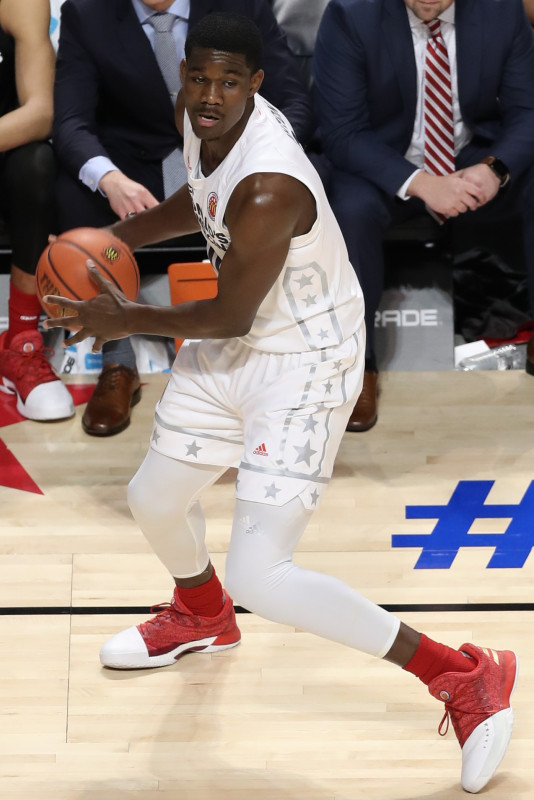
57 minutes ago Lakers Seek to Unlock Ayton's Greatness While Hayes Shines, Exposing Unwanted Truth.

57 minutes ago Jrue Holiday NBA DFS picks, lineups, and player prop bets for February 24.
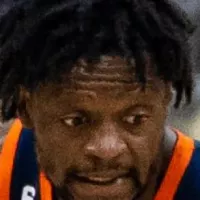
57 minutes ago Julius Randle's Injury Update: Chris Finch Comments, Randle Scores 18 in Loss
57 minutes ago Jaden McDaniels excels as scorer, boosting Timberwolves with underrated skills this year.
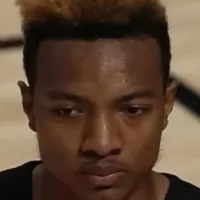
58 minutes ago NBA Southeast Notes Discuss Trades, Desmond Bane's Performance, and Wendell Carter Jr.
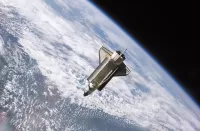
2 hours ago Space Force Upgrades, Battle Management, and Role in Raids Spark Resource Push
Popular

Jesse Jackson is an American civil rights activist politician and...

Susan Rice is an American diplomat and public official prominent...

Barack Obama the th U S President - was the...

Michael Joseph Jackson the King of Pop was a highly...

Bernie Sanders is a prominent American politician currently serving as...

XXXTentacion born Jahseh Dwayne Ricardo Onfroy was a controversial yet...
